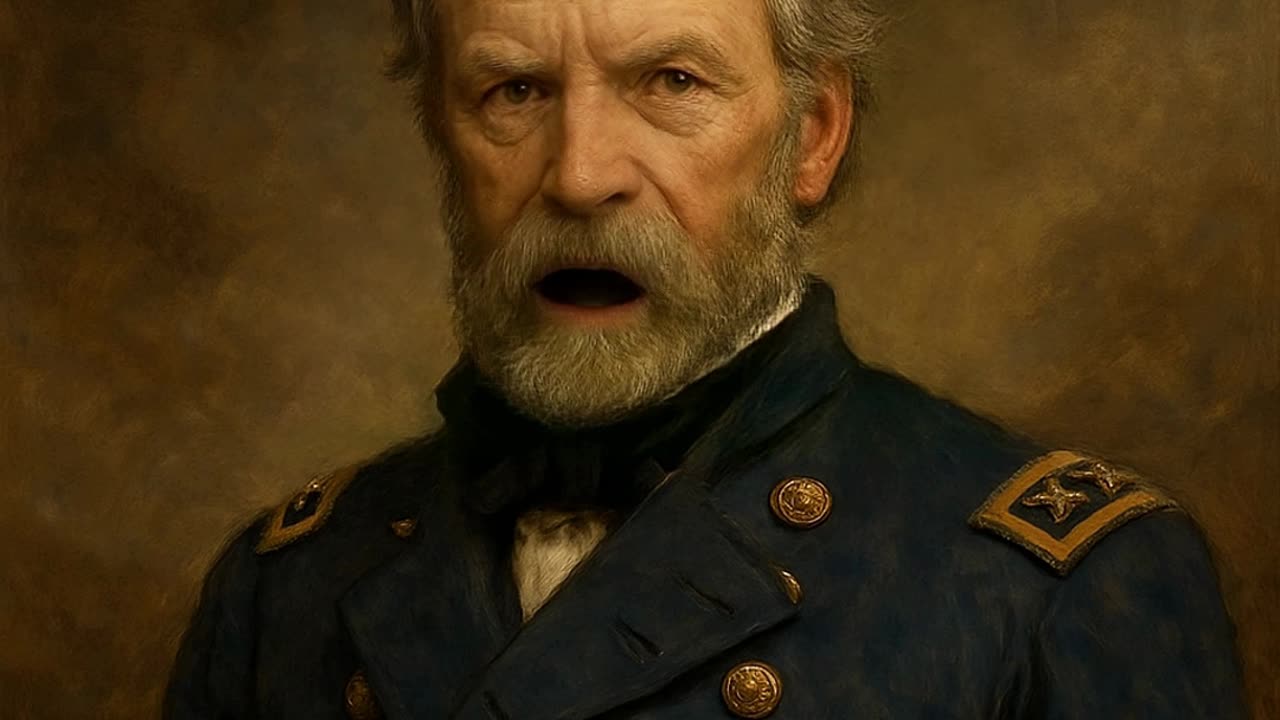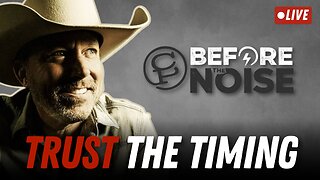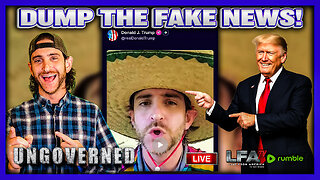Premium Only Content

General William Sherman Tell About his March to the Sea and Devistation He Left to End the Civil War
Presented to you by: http://www.HistoricalConquest.com
Read more on our blog at: https://www.historicalconquest.com/blog
My name is William Tecumseh Sherman, and I was a Union general during the American Civil War—one of the most well-known and, yes, one of the most controversial. You’ve probably heard of my "March to the Sea", but there’s a lot more to my story than just fire and destruction. Let me tell you how I helped bring the Civil War to an end and why I did the things I did.
I was born on February 8, 1820, in Lancaster, Ohio. My middle name, Tecumseh, came from the famous Shawnee chief—my father admired him greatly. When I was just nine years old, my father died, and I was taken in by a family friend, Thomas Ewing, a U.S. senator. He later got me into West Point, the military academy, where I graduated in 1840. I didn’t love the army at first, so after a few years, I left and worked in banking, law, and even education. But when the Civil War started in 1861, I knew I had to return to military service.
I quickly rose through the ranks and became one of General Ulysses S. Grant’s most trusted officers. We worked side by side in battles like Shiloh and the Siege of Vicksburg. I believed in fighting total war—not just armies, but the infrastructure that supported them. My thinking was simple: if we destroyed the South’s ability to keep fighting, the war would end faster and fewer people would ultimately die. Not everyone agreed with me, but I believed in doing what was necessary to preserve the Union.
In 1864, I led my famous March to the Sea from Atlanta to Savannah, Georgia. We burned railroads, factories, and supplies the Confederate army relied on. We didn’t target civilians directly, but we wanted to make war so hard that the South would surrender. It worked. The march broke the South’s spirit and cut them off from key resources. By the time I met up with Grant in 1865, the end of the war was near. I accepted the surrender of the Confederate army in the Carolinas not long after.
After the war, I became Commanding General of the U.S. Army and worked to protect the rights of newly freed African Americans during Reconstruction. I also had a complicated role in the Indian Wars in the West—something historians continue to debate. I was offered the chance to become President of the United States, but I said no. Politics wasn’t for me. I famously said, “I will not accept if nominated and will not serve if elected.”
I passed away on February 14, 1891, but my military strategy and legacy are still studied today. I know some people view me as harsh or even cruel, but I believed in doing what was necessary to end a brutal war and save the Union. I loved my country, and I fought to keep it whole.
If there’s one lesson I want you to take from my story, it’s this: sometimes, leadership means making hard decisions, even when they’re unpopular. But if you believe your cause is just and your actions will lead to peace, you must stand firm. Thank you for listening.
Visit us at: https://www.historicalconquest.com/marketplace
#historicalconquest #history #historical #SecondIndependence #abolition #Freedom #IndustrialRevolution #Industry #colonialera #colonialamerica #constitution #usconstitution #unitedstates #unitedstatesofamerica #wildwest #slavery #civilwar #war #warofthecurrent #electricity #nikolatesla #tesla #edison #thomasedison #lewislatimer #blackhistory #africanamerican
-
 0:59
0:59
The Historical Conquest Channel
10 days agoQueen Elizabeth I Tells of Her Story Supporting Sir Francis Drake and Taking on the Spanish Armada
6 -
 LIVE
LIVE
Badlands Media
11 hours agoBadlands Daily: October 3, 2025
3,356 watching -
 LIVE
LIVE
iCkEdMeL
1 hour agoChicago Erupts in ICE Protest as Diddy Faces Judge’s Hammer
123 watching -
 1:01:12
1:01:12
Crypto Power Hour
2 hours ago $0.03 earned#1 AI Driven BTC & ETH Crypto Trading Platform w/ Max Pace
707 -
 1:01:13
1:01:13
Chad Prather
13 hours agoWhen God Delays: Trusting Jesus in the Waiting Room of Life
39.2K27 -
 LIVE
LIVE
LFA TV
12 hours agoLIVE & BREAKING NEWS! | FRIDAY 10/3/25
2,575 watching -
 1:57:11
1:57:11
The Chris Salcedo Show
13 hours ago $4.13 earnedDems Have Always Been For Giving Your Money To Illegals
20.9K3 -
 14:41
14:41
IsaacButterfield
1 day ago $4.33 earnedFree Speech Is DEAD In Australia!!
41.1K32 -
 59:59
59:59
SGT Report
13 hours agoIT'S ALL THEATER -- Seth Holehouse
34.1K53 -
 2:00:59
2:00:59
BEK TV
1 day agoTrent Loos in the Morning - 10/03/2025
20.8K
